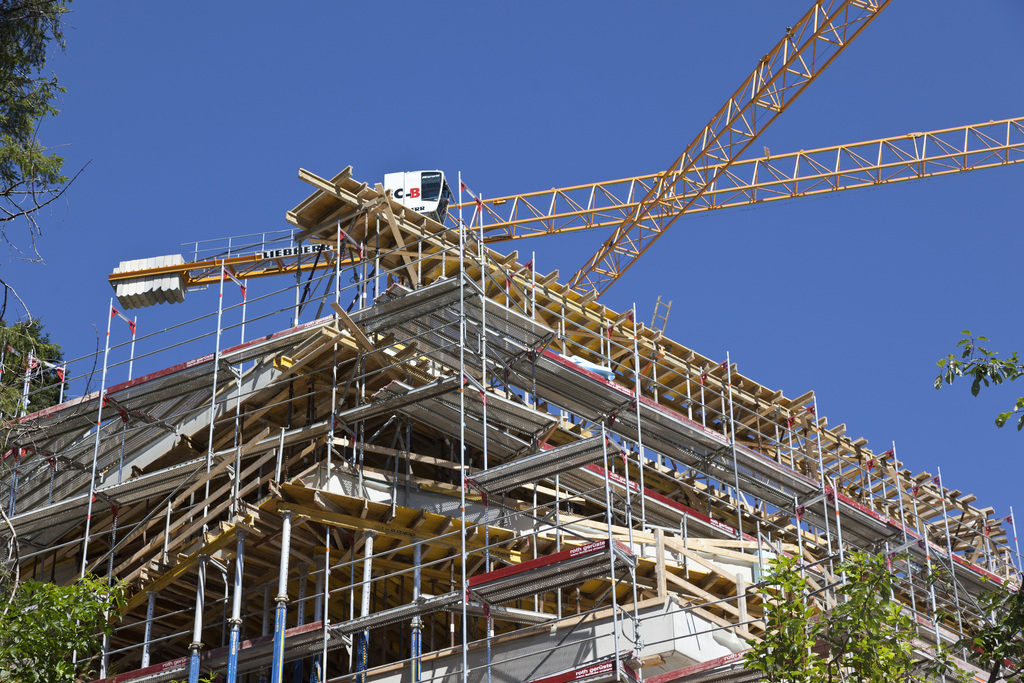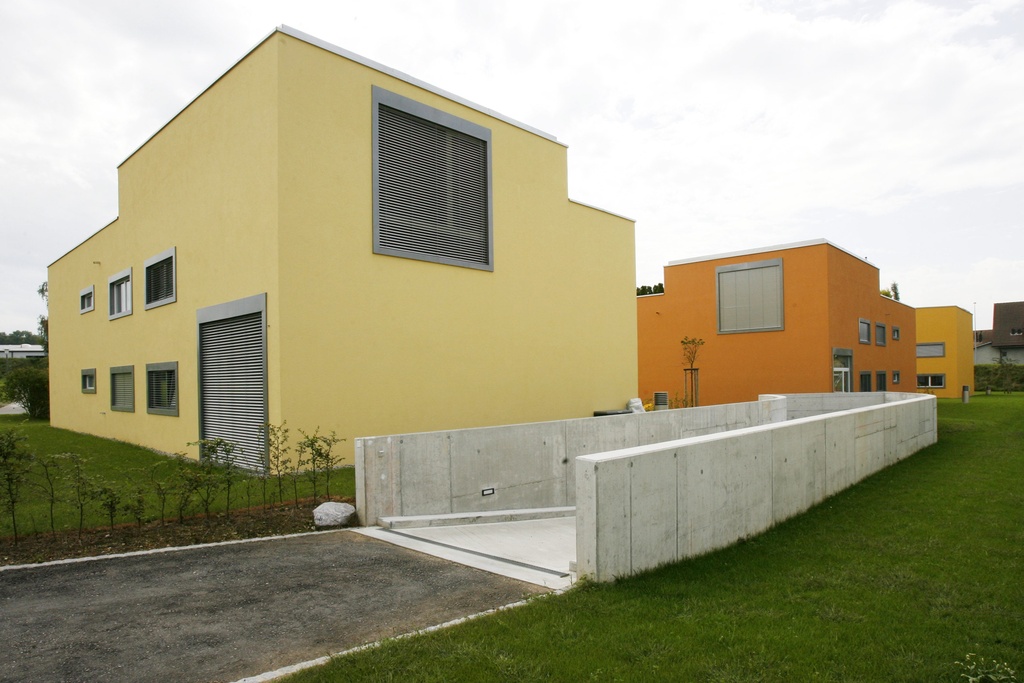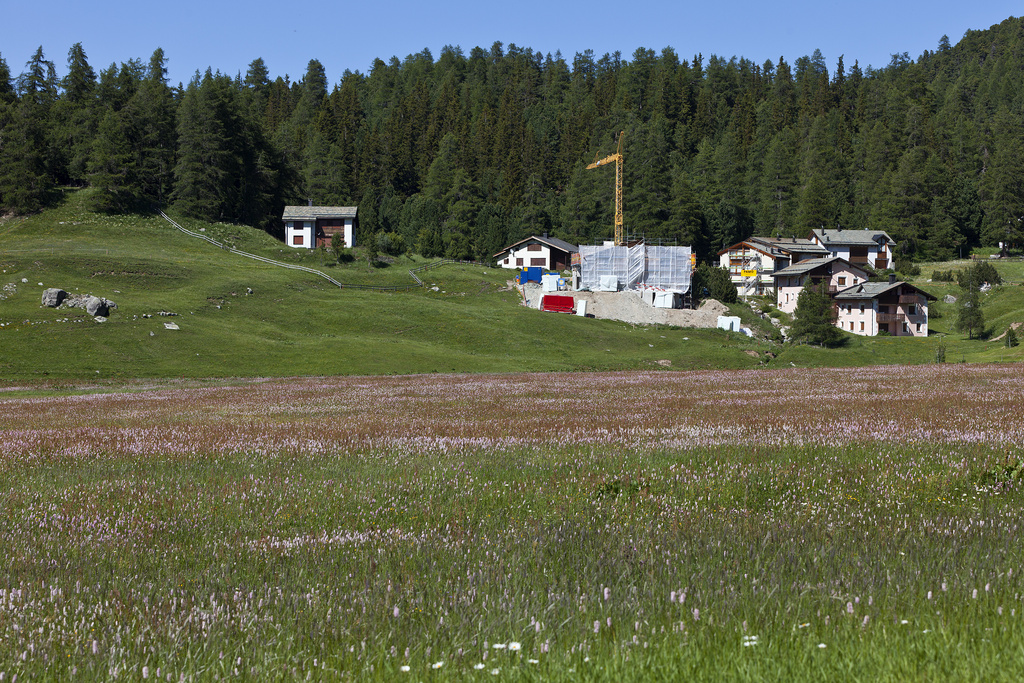Press sees winners and losers in cabinet decision

Swiss newspapers are predicting a flurry of activity before January 1, 2013, when a law introducing quotas for holiday homes takes effect. The dailies were responding to Wednesday’s cabinet decision on the implementation of the law.
After voters in March approved a 20 per cent cap on the number of second homes, the government had to decide when and how to implement it. It was a highly anticipated decision, and one that was bound to be controversial.
On the one side, supporters of the quota who said the property boom in second homes was unchecked wanted to see the cap introduced from September 1, while opponents of the initiative, including the tourism lobby and authorities in many alpine regions, were hoping for a later implementation date and exceptions.
Newspapers on Thursday saw the cabinet’s decision as a victory for the opponents.
“The people behind the initiative are taking on the role of victims and the alpine cantons are crowing with satisfaction,” said an editorial in Geneva’s Le Temps.
An editorial in the Tribune de Genève agreed: “The alpine regions are jubilant: the corset of the holiday homes initiative was measurably loosened yesterday.”
In an interview with the Basler Zeitung, Vera Weber, one of the main backers of the initiative, said she “totally and completely” disagreed that the will of the people was taken into account in the cabinet’s decision.
The decision “goes nowhere near as far as our initiative wanted,” said Weber.
The supporters had wanted the cap to take effect as of September 1, 2012. By setting the date of implementation in 2013, the council “has taken the side of the losers and played a trick on the Swiss people,” said Philippe Roch, a former director of the environment ministry, in an interview with Bern’s Bund paper.
Weber expects a flood of building applications to be filed in mountain resorts between now and January. Her group, Helvetia Nostra, has called on citizens to lodge appeals against such requests.
“The government has granted the involved communes a last building boom, before it clamps down on new second homes,” said Zurich’s Tages-Anzeiger. People in mountain regions can now “stop whining” it said.
The Green Party had warned earlier of “a chaos of legal complaints and appeals” and problems for the local building sector trying to cope with a flood of construction contracts.
The Neue Zürcher Zeitung agreed with this assessment, describing the decision in its commentary as “fodder for lawyers”, but also as a compromise.
The tabloid Blick saw the cabinet’s decision as a setback for Environment Minister Doris Leuthard. “Not only did Leuthard lack support from the other centre-right members of the cabinet; she also lacked backing from her own party,” Blick said.
“Apparently, the battle line between the two camps—the ‘enforcers’ and the ‘diluters’ — ran right down the middle of the cabinet,” commented the NZZ.
The initiative, narrowly passed by a one per cent margin, had support from voters in both urban and rural areas. Only Valais – a traditional tourist region – recorded an overwhelming majority of “no” votes.
The second homes people’s initiative was one of only 19 accepted by voters in modern Swiss history. 180 initiatives have gone to the polls.
Environment Minister Doris Leuthard made the details of the legal statute public following an August 24 cabinet meeting. They include the date of implementation, the definition of holiday homes, and notable exceptions.
Under the interim regulation it will remain possible to convert existing buildings into holiday homes.
Switzerland is made up of more than 2,550 communes in 26 cantons.
In around 570 communes, notably those in mountain regions, more than 20% of homes are second homes.
Among the tourist regions particularly affected by the quota are the Valais, Ticino, Graubünden and Bernese Oberland.

In compliance with the JTI standards
More: SWI swissinfo.ch certified by the Journalism Trust Initiative














You can find an overview of ongoing debates with our journalists here . Please join us!
If you want to start a conversation about a topic raised in this article or want to report factual errors, email us at english@swissinfo.ch.